The Northern Territory is certainly no stranger to military exercises and often as one ends, another begins, sometimes within weeks or even days. Such is the case this year from 12 to 23 September with Exercise Kakadu 2016 being launched by the Royal Australian Navy (RAN), an exercise that covers a large area of sea and air spaces in northern Australia.
Exercise Kakadu 2016 is a two yearly, multi-national maritime exercise that will involve up to 19 nations from not just within the Indo-Pacific region, but as far as Canada, the United states and even France. Participating countries will be deploying a variety of their assets including 19 surface and sub-surface vessels and 18 or more aircraft which will perform a number of roles including maritime surveillance, air to surface attack and search-and-rescue activities, to name a few. Some nations such as Fiji, Vietnam, Timor-Letse and the Republic of Korea will be participating as observers.
This is the 13th time Exercise Kakadu has been held and will again promote partnerships between the multi national forces to better their skills at not just maritime warfare scenarios, but international aid and humanitarian assistance operations, plus sharing search and rescue techniques. Initially splitting into 3 task forces once leaving Darwin Harbour, they will test their abilities to defend themselves and neutralise threats from both surface and sub-surface elements and of course those airborne threats based out of Darwin.
The exercise is planned to work towards a final 1 vs 1 scenario where two opposing task forces utilising their prime naval and air assets will have what the Commander of the Australian Fleet, Rear Admiral Stuart Mayer, describes as a “free play”.
RAAF Base Darwin is hosting a number of foreign fixed wing assets from the Republic of Singapore Air Force/Navy, United States Navy, Pakistan Navy and Japan Maritime Self Defence Force.
These aircraft are the backbone to Maritime Airborne Surveillance and include the Dassault HU-25 Guardian, Boeing P-8 Poseidon, Fokker F-50 MPA and several versions of the P-3C Orion, both the Lockheed and the licence built Kawasaki Heavy Industry version.
In addition to RAAF AP-3C, C-17A and C-130 transports regularly in and out of Darwin, there will be BAE 127 Hawks in attendance from 79 Sqn, normally based at RAAF Base Pearce in Western Australia. These aircraft are used in a number of training roles but will be utilised for Fleet Attack/Support in the Top End.
“Air Force fast jet and maritime patrol aircraft crews will conduct simulated attacks on both surface and subsurface vessels in the waters off northern Australia” – Squadron Leader Mark Williams, Commander, Task Unit Air Headquarters for the exercise.
79 Squadron is familiar in fleet support operations as they often interact with the Royal Australian Navy off the Western Australian coast during other training and exercise activities.
Just on a historical note, 79 Squadron was once temporarily located at Sattler Airfield about 30km from Darwin during January/February 1945 while they refitted with newer Spitfire Mk8’s. In a recent commemoration at the RAAF Museum located in Point Cook, Victoria , a full size replica of 79 Squadron’s Supermarine Spitfire MK VIII A58-492 has been placed on display – for more information slip on over to here and read Dave Sodertrom’s take on this dedication event. 79 Sqn has also transited through RAAF Base Darwin when equipped with CAC Sabres and Mirage III aircraft.
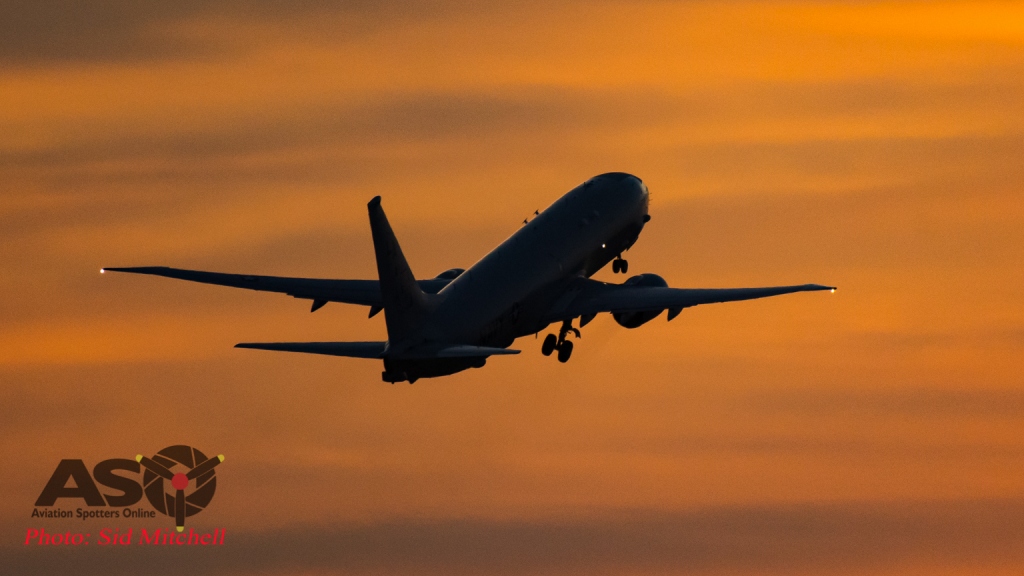
USN VP-5 ‘Mad Foxes” P-8 off for a night mission
With ships from a number of navies in the exercise, rotary aircraft will play an important part in sea operations, from ship to ship transfers, search and rescue, to one of their core roles – sub hunting. Although not based at Darwin helicopters have been seen transiting to and from the fleet and RAAF base, one such example is the S-70B -2 Seahawk of the RAN (816 Sqn).
Even a pair of RAAF CH-47F Chinooks were seen aboard the HMAS Adelaide anchored up in Darwin harbour in the opening days of the exercise.
So with mostly offshore action the majority of movements over land will be launching and recovery from their blue-water missions – still a great opportunity to see some classic and contemporary military aviation aircraft continuing to fill the Northern Territory skies.
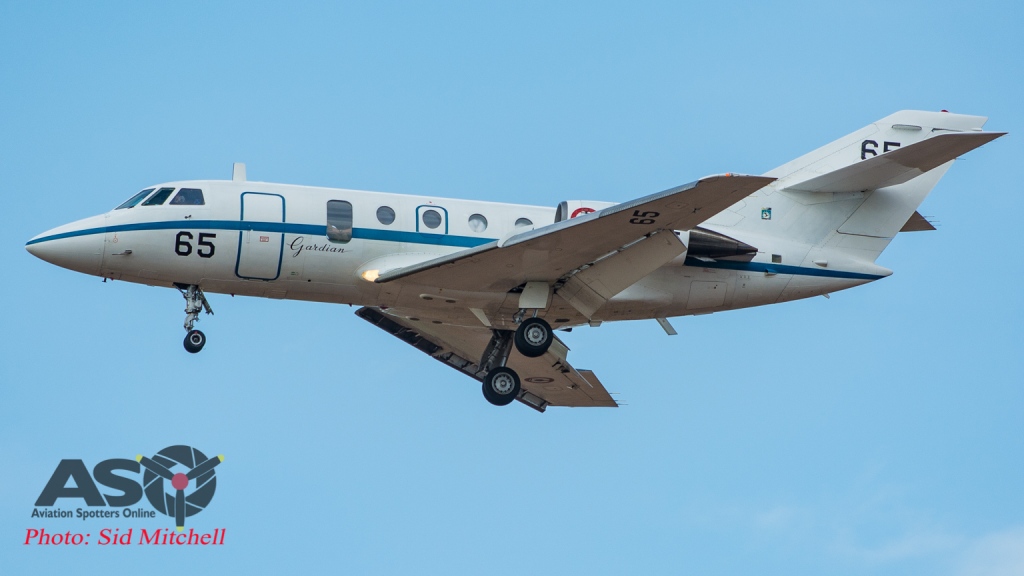
French Navy Dassault HU-25 Guardian ’65’ on approach
Another aspect of modern exercises is the fact that some of the functions are contracted out to civilian firms who can provide various training assets for each exercise. This alleviates the need for the Australian defence Force to maintain some training systems that are not utilised all year round.
One such company is Air Affairs who provide Learjet aircraft with crews and towed targeting systems that integrate with the ADF during training exercises such as Kakadu. This year there are 4 Lear 35/36’s from AA and a Lear from Raytheon involved with the operations, all based out of RAAF Base Darwin
Another operation to be filled by civilians can be the Search and Rescue function during a variety of exercises. Currently in Darwin is VH-EPH, a CHC Helicopters Australia Bell 412EP operated by Lloyd Helicopters.

VH-EPH CHC Helicopters Australia operated by Lloyds in SAR role
A full list of those participating nations in both active and observation capacites – Australia, Canada, Fiji, France, India, Indonesia, Japan, Malaysia, New Zealand, Pakistan, Papua New Guinea, Philippines, Republic of Korea, Singapore, Thailand, Timor Leste, Tonga, United States of America, and Vietnam.
With so many exercises either based out of Darwin itself, or including Darwin and the surrounding restricted training areas and weapons ranges, I certainly appreciate the opportunity to share some photo’s of both RAAF and other aircraft from our international exercise partners. Never boring in the Top End…..just how I like it.
Sid Mitchell

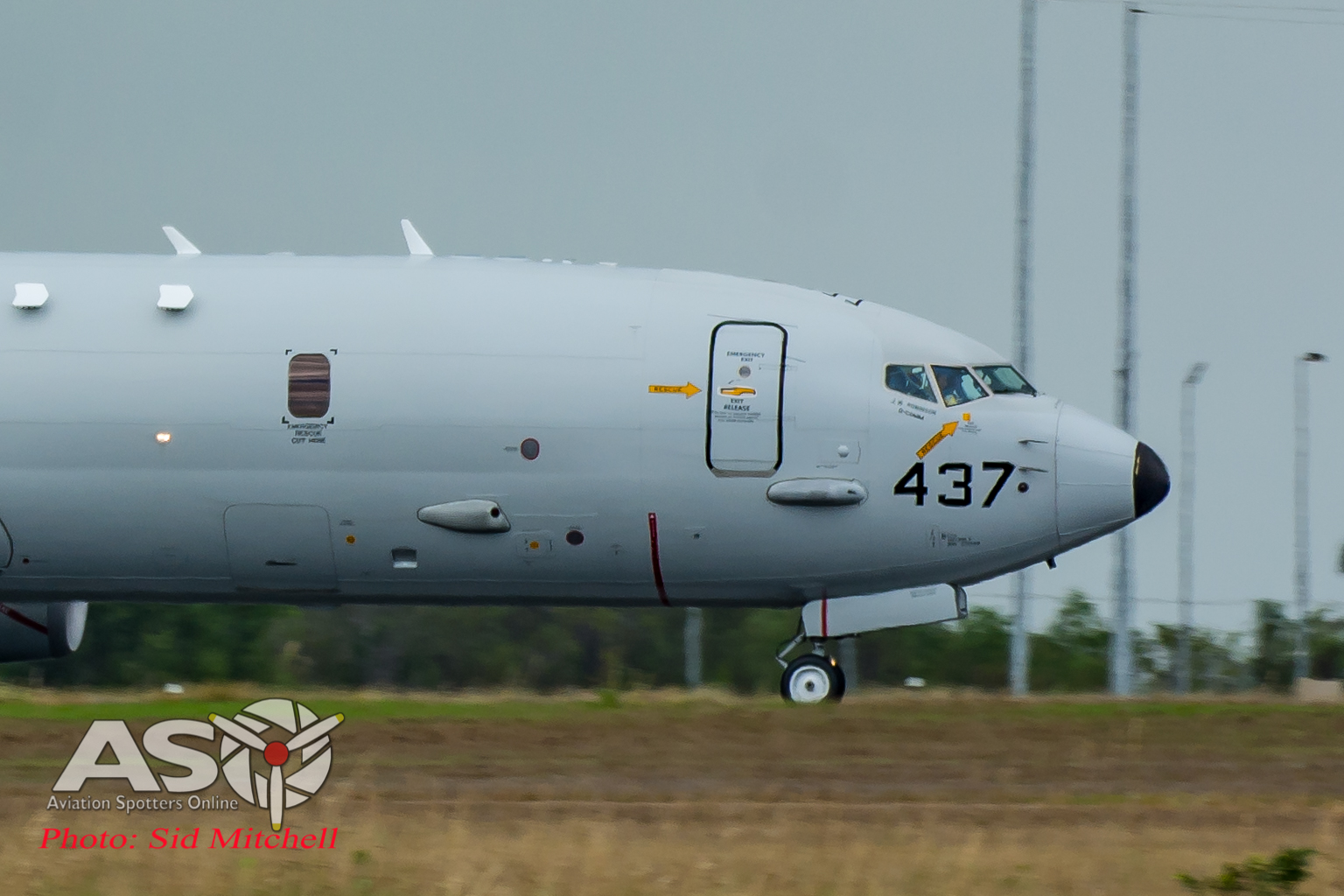
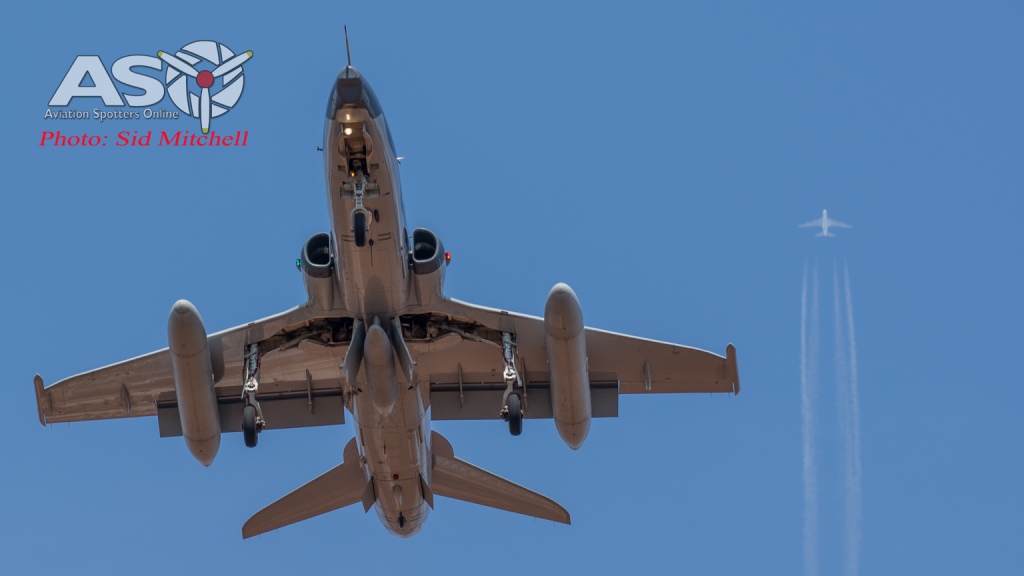
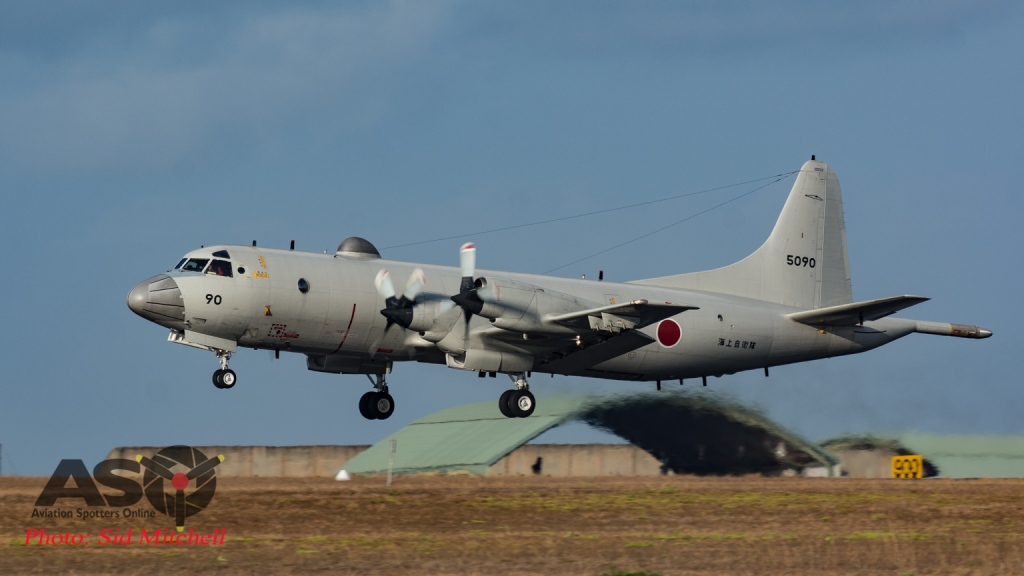
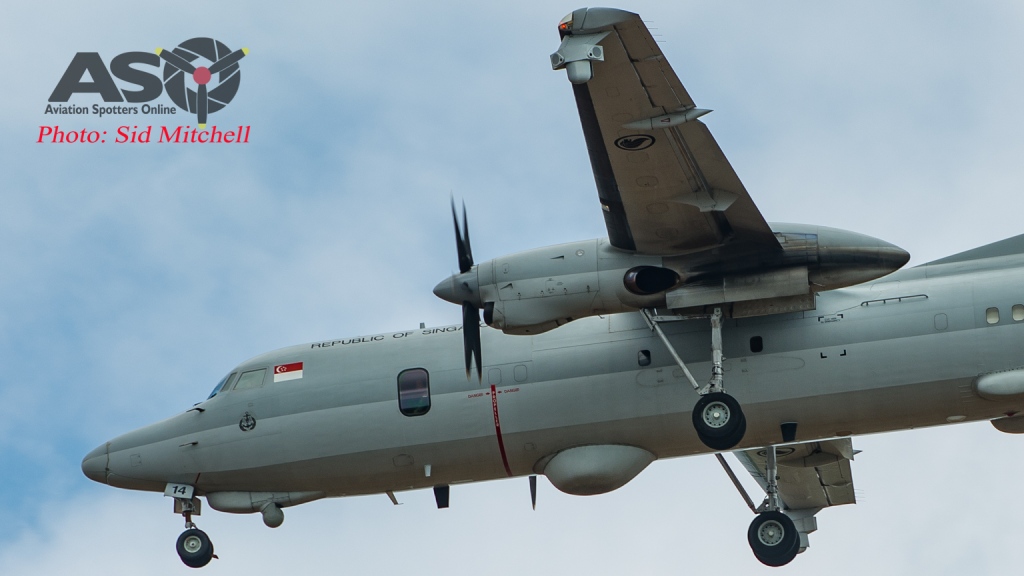
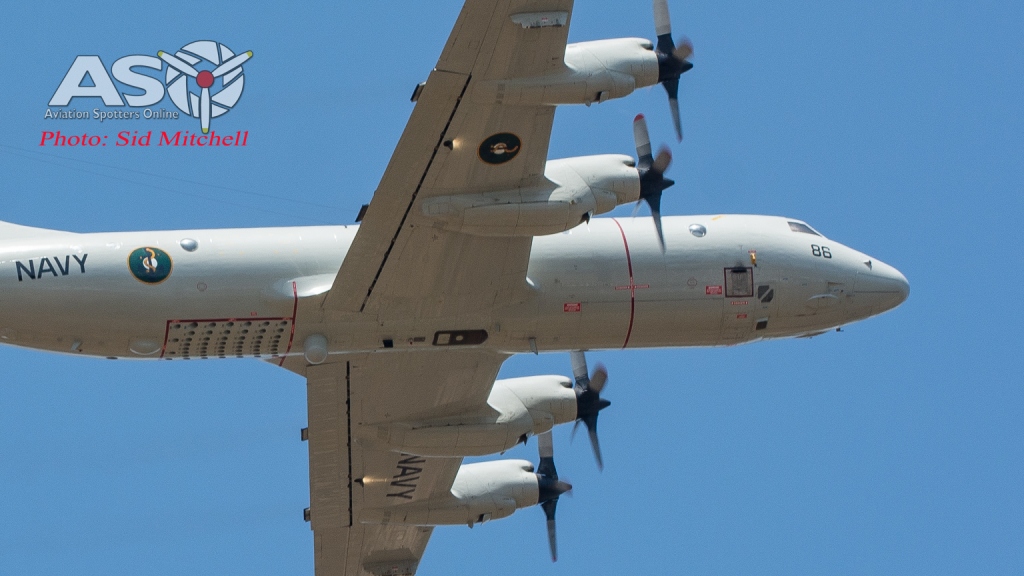
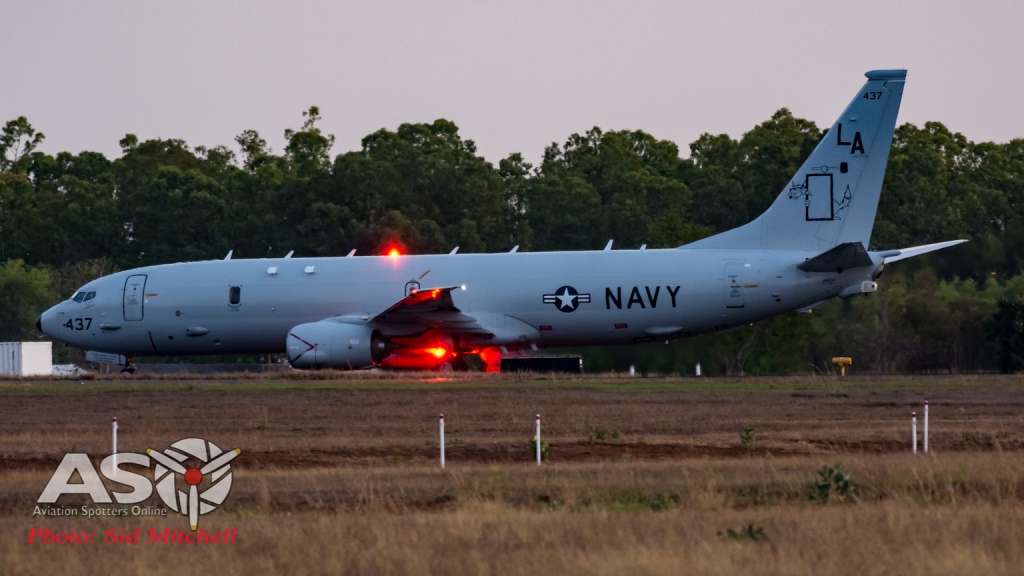
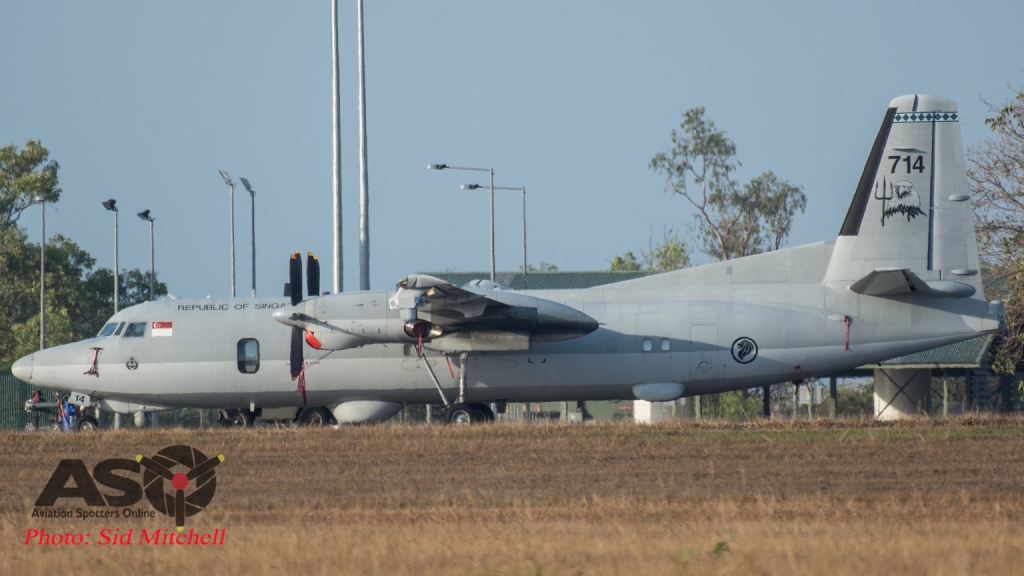
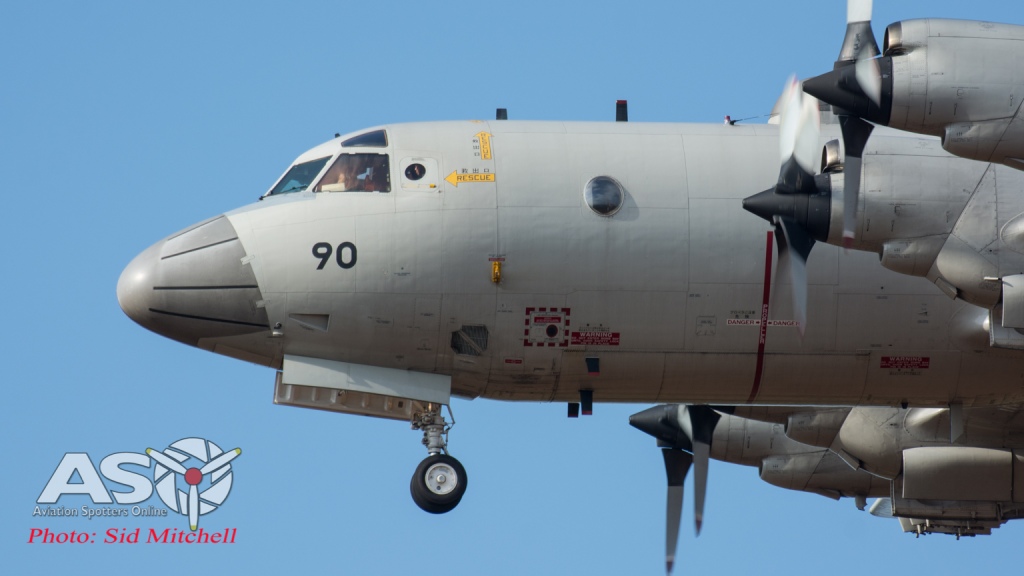
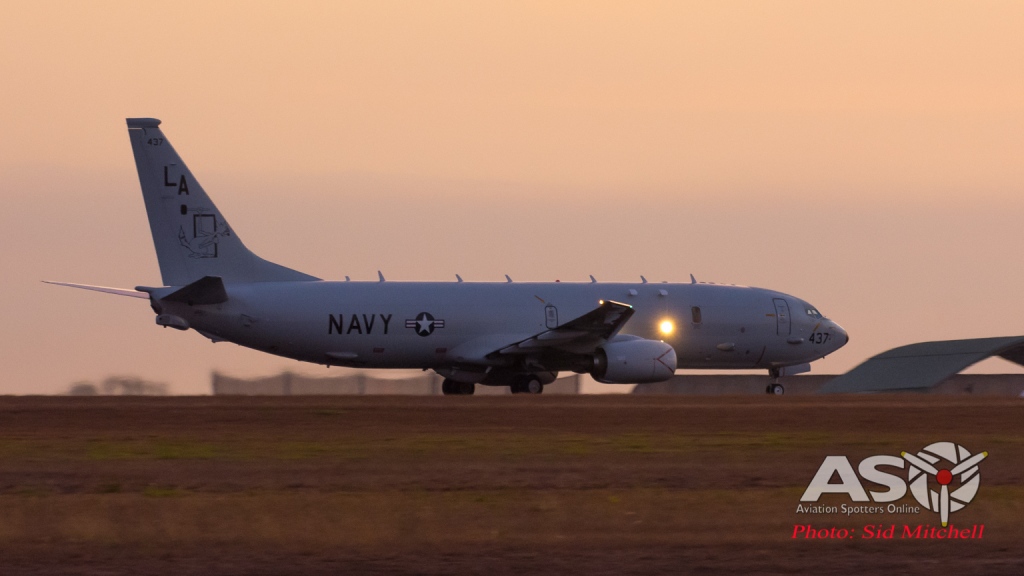

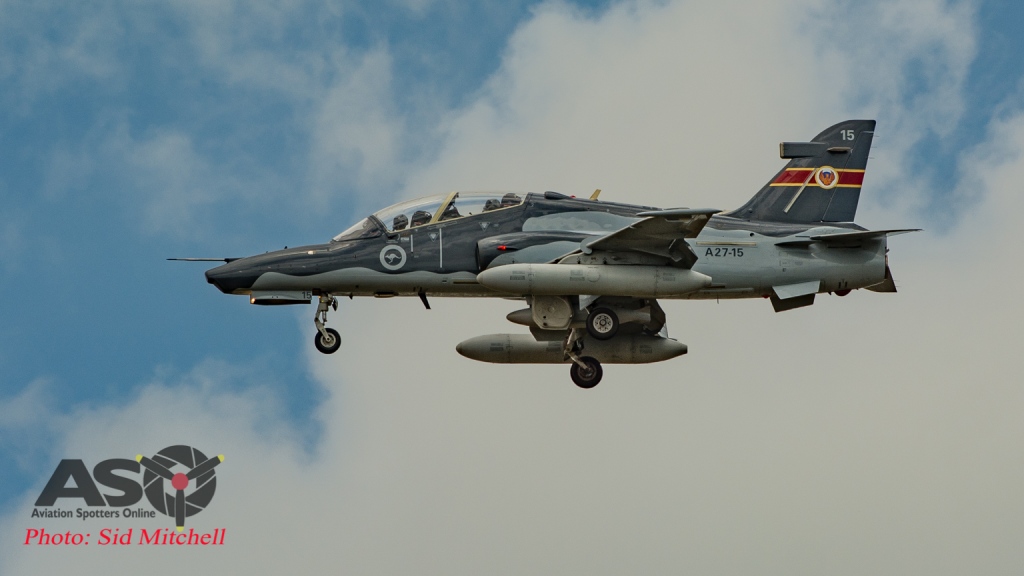
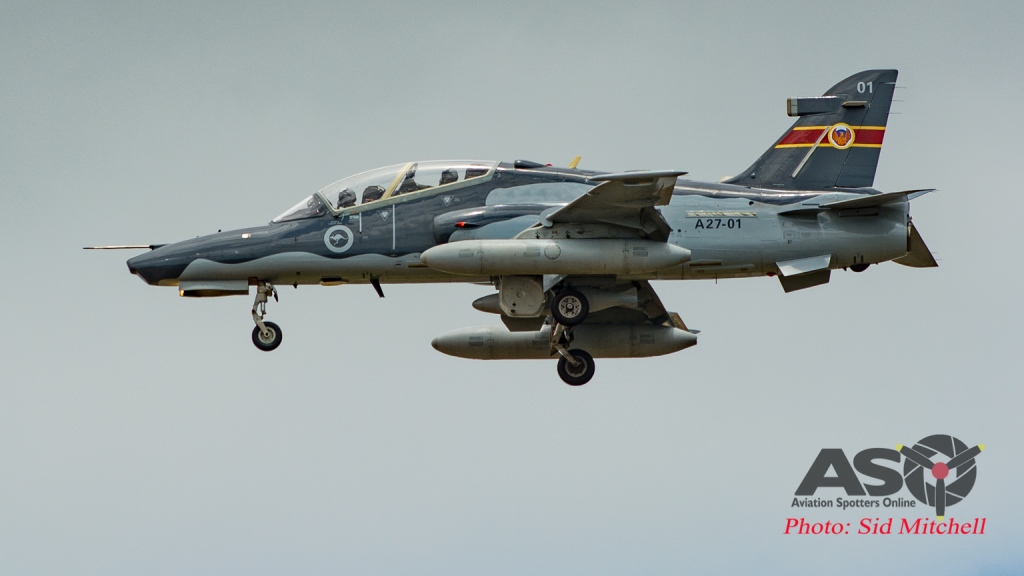


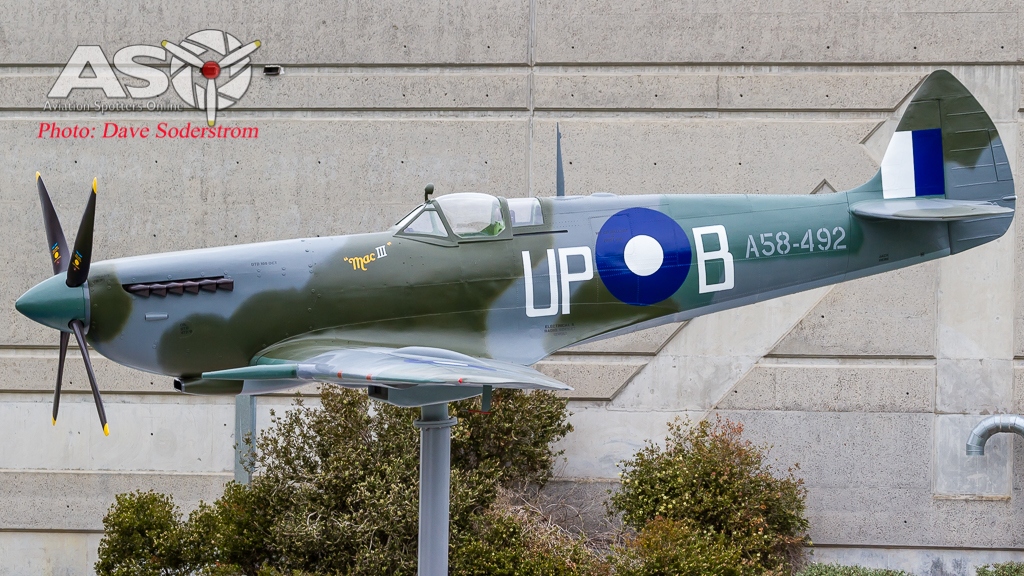
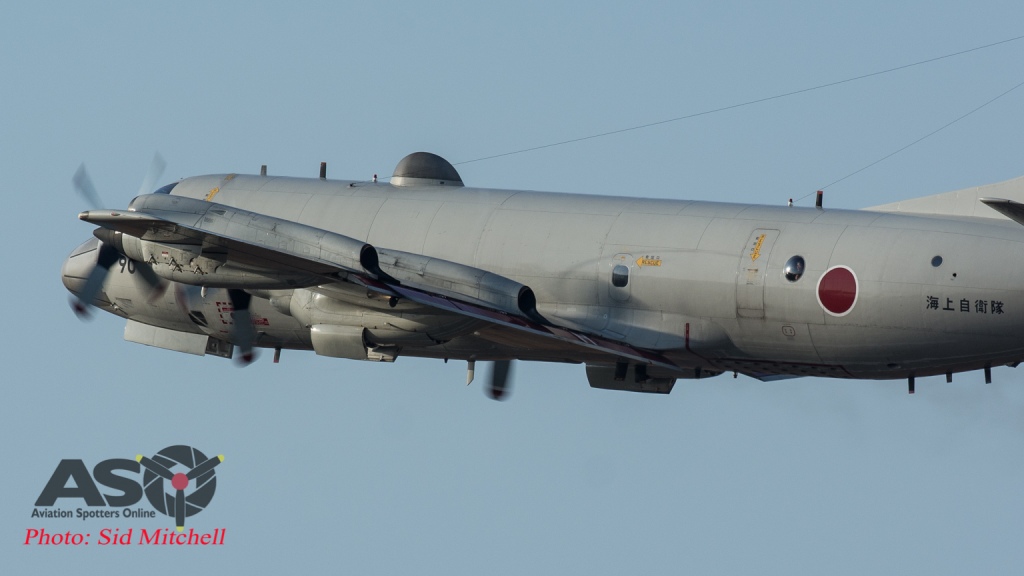
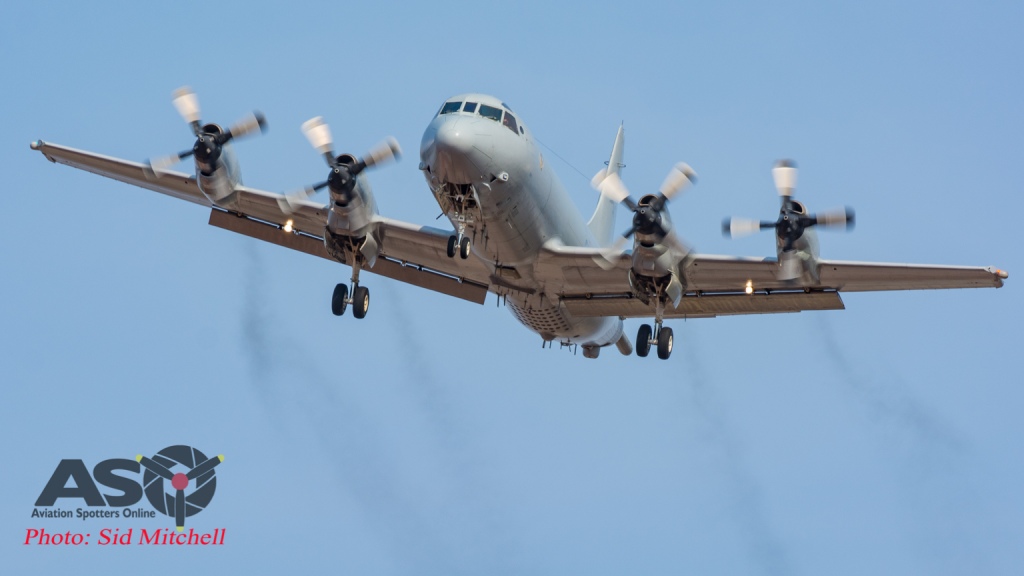
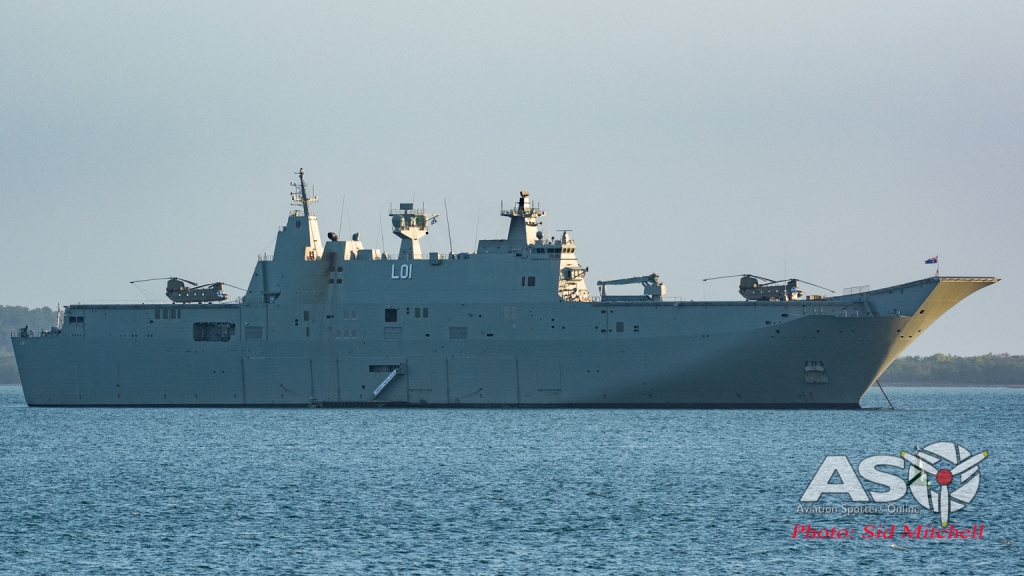
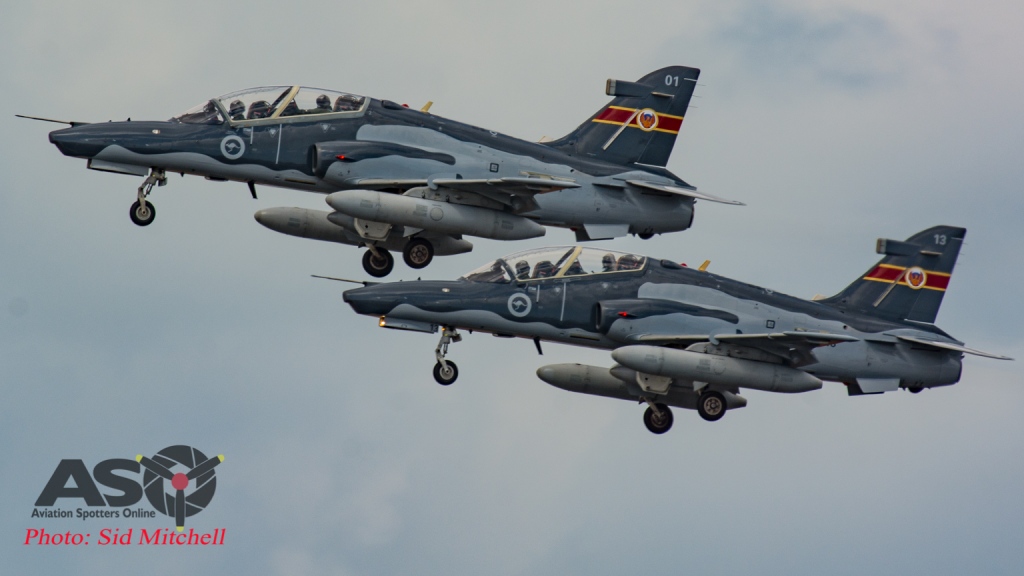
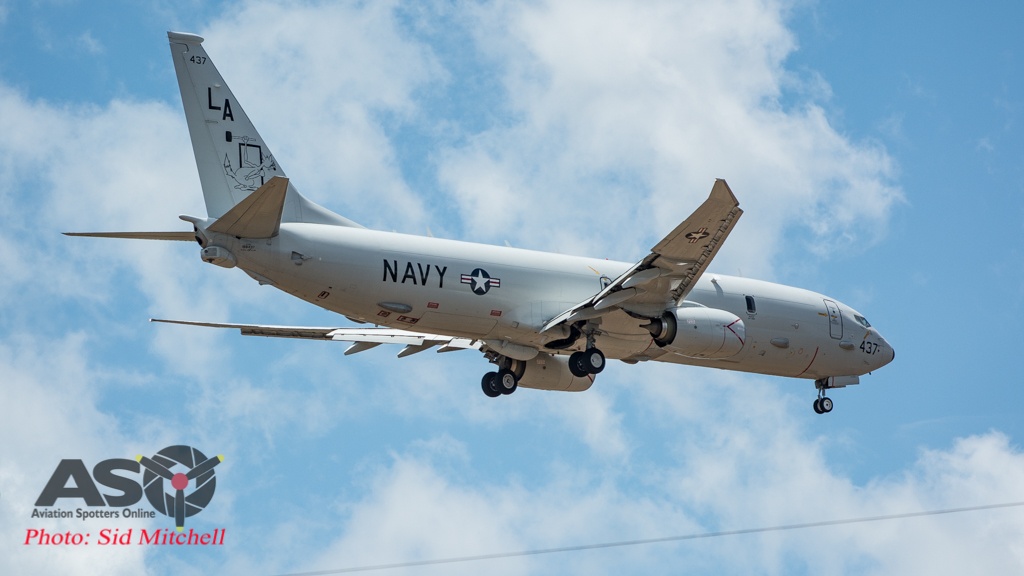

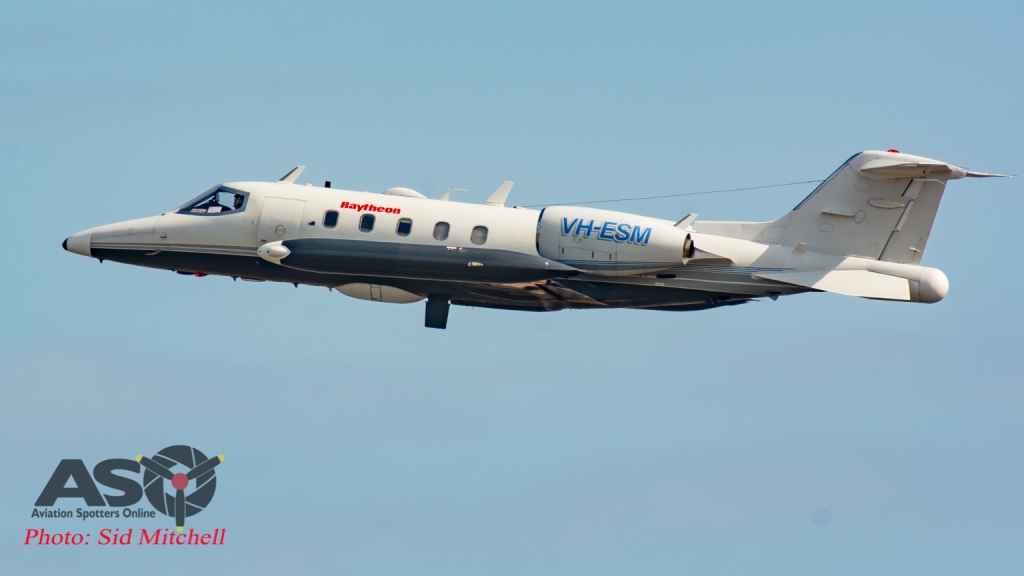
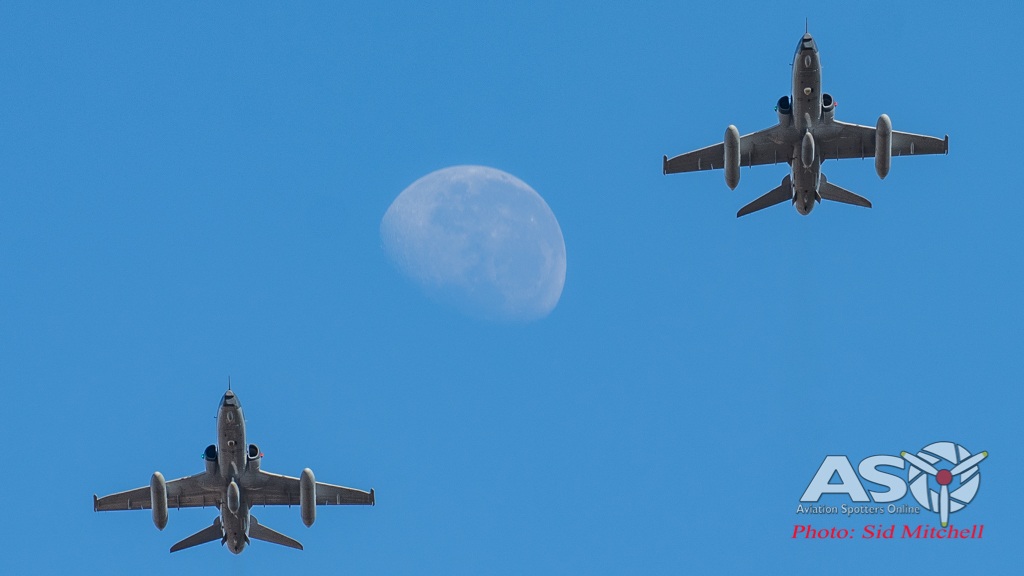
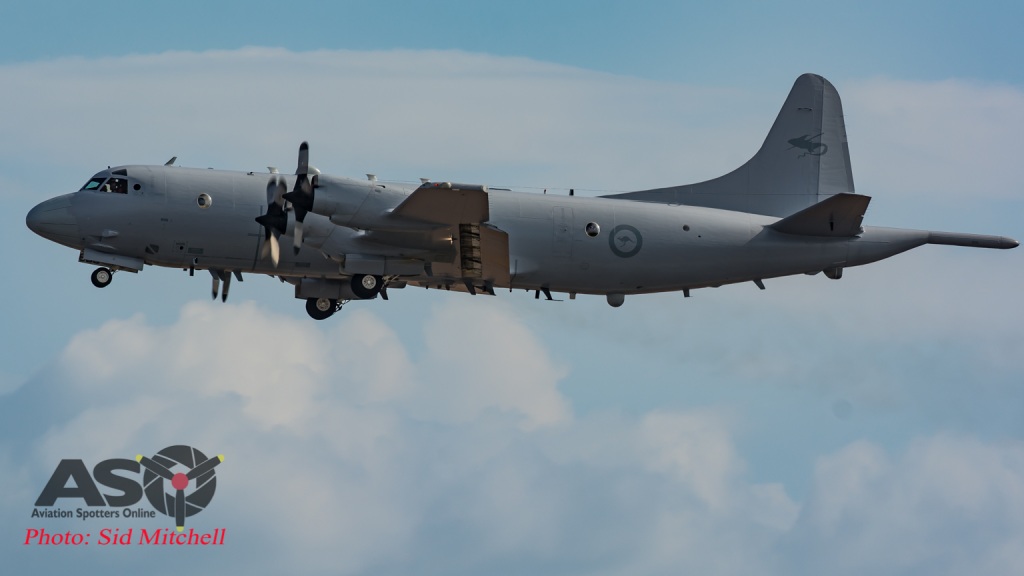
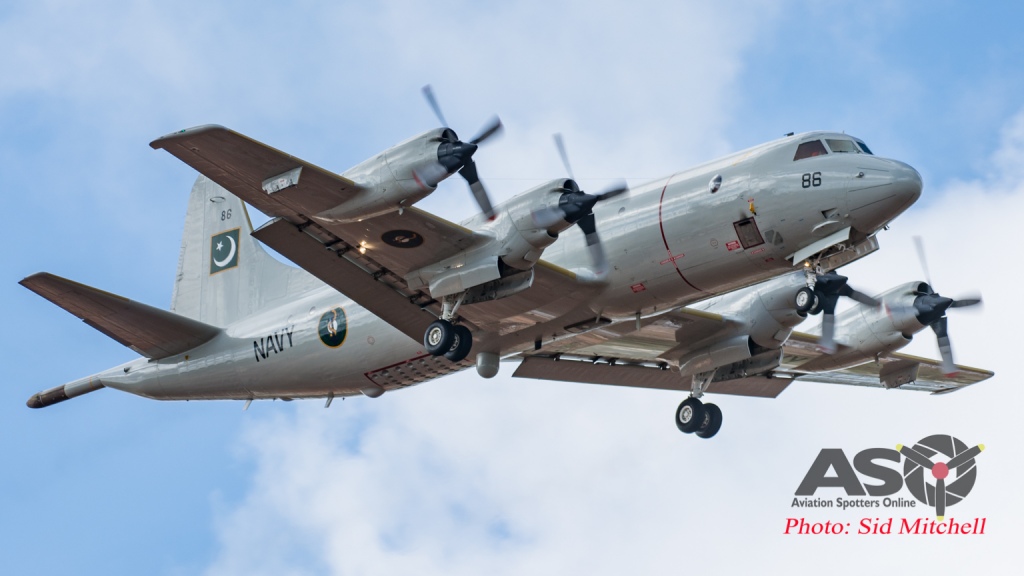
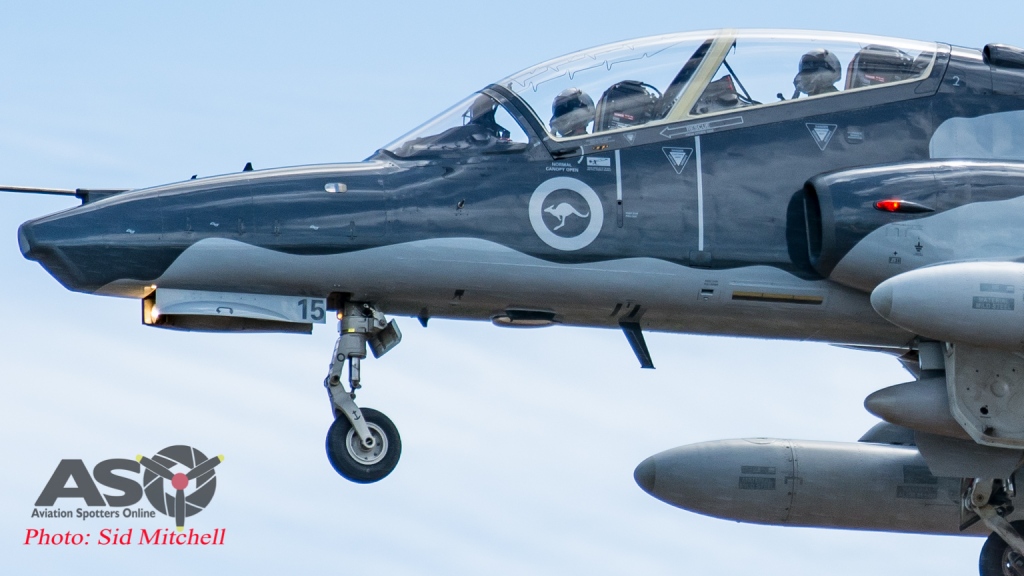
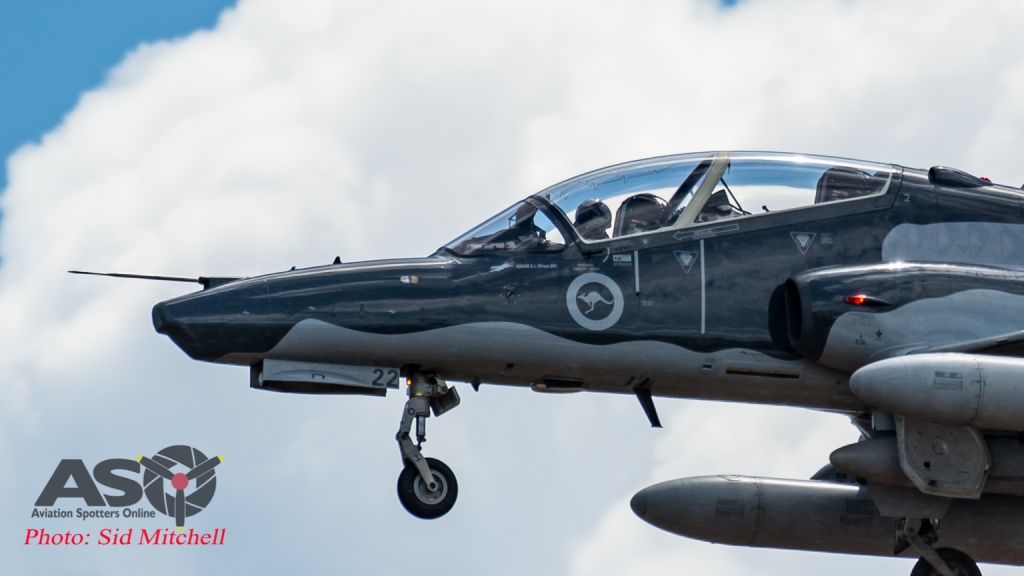
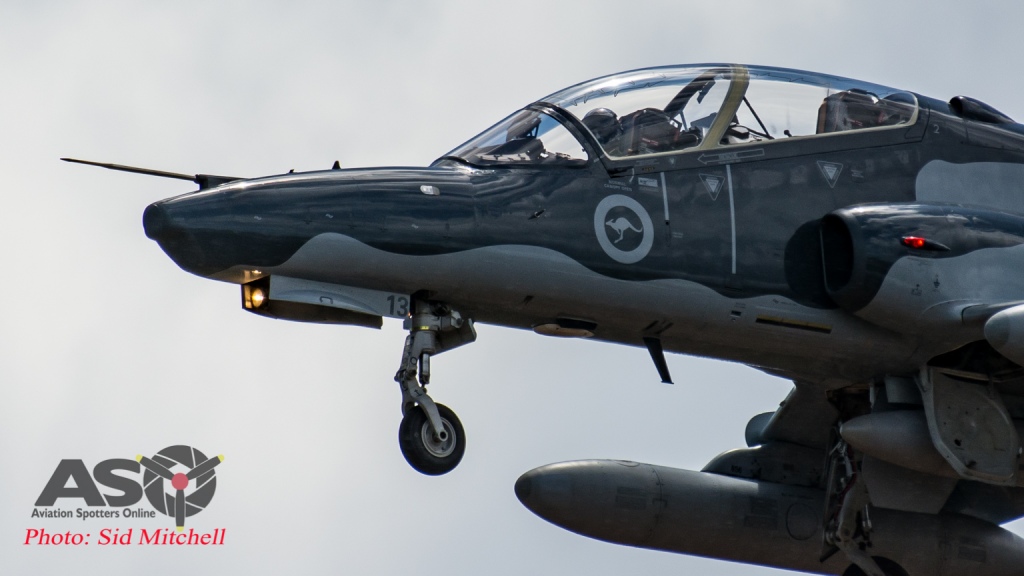

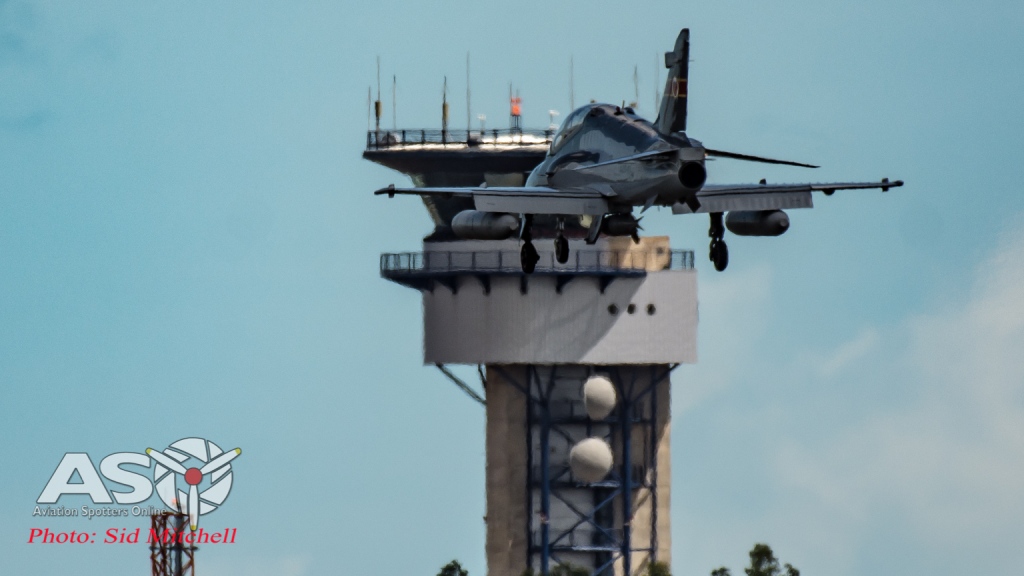
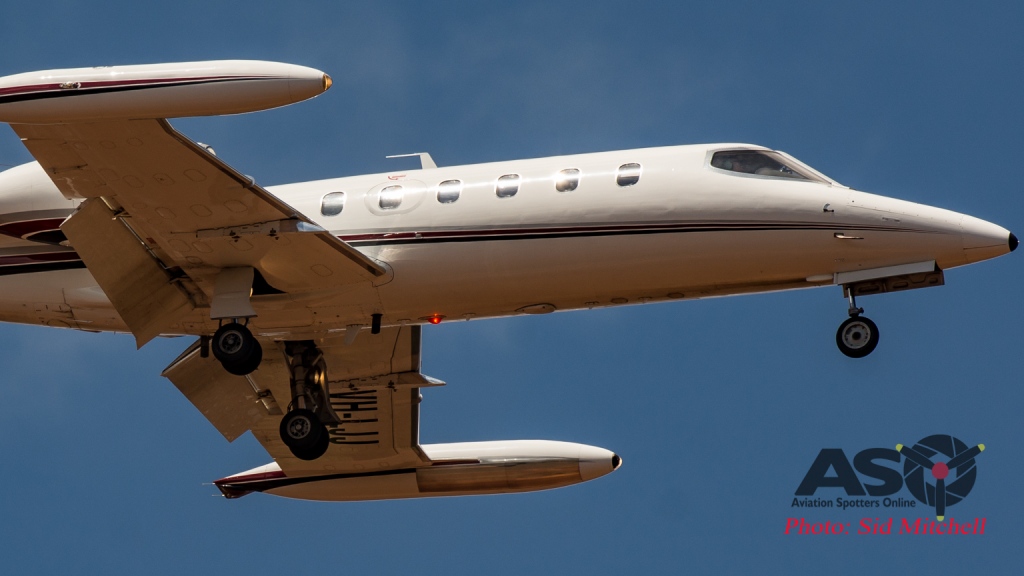



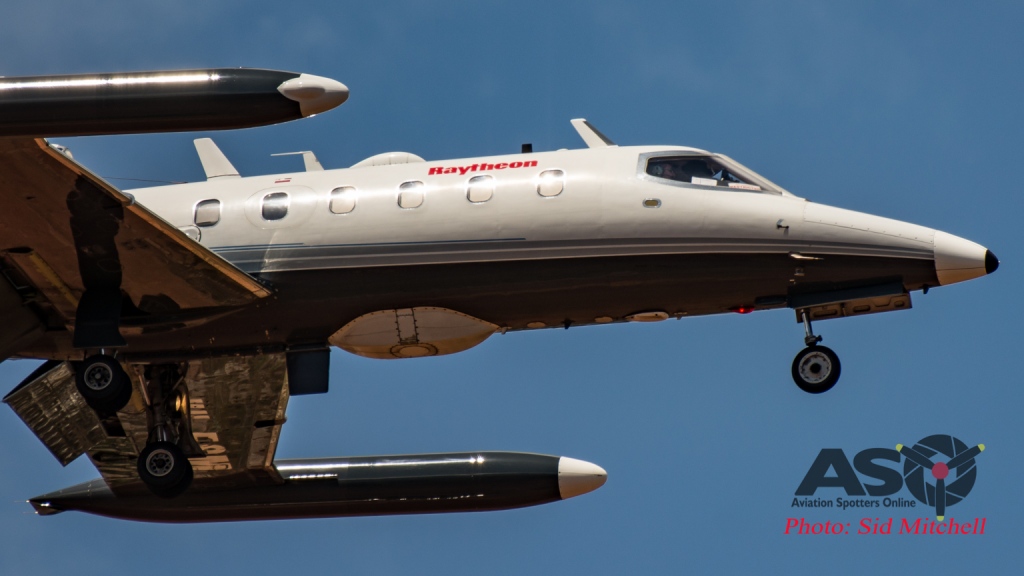


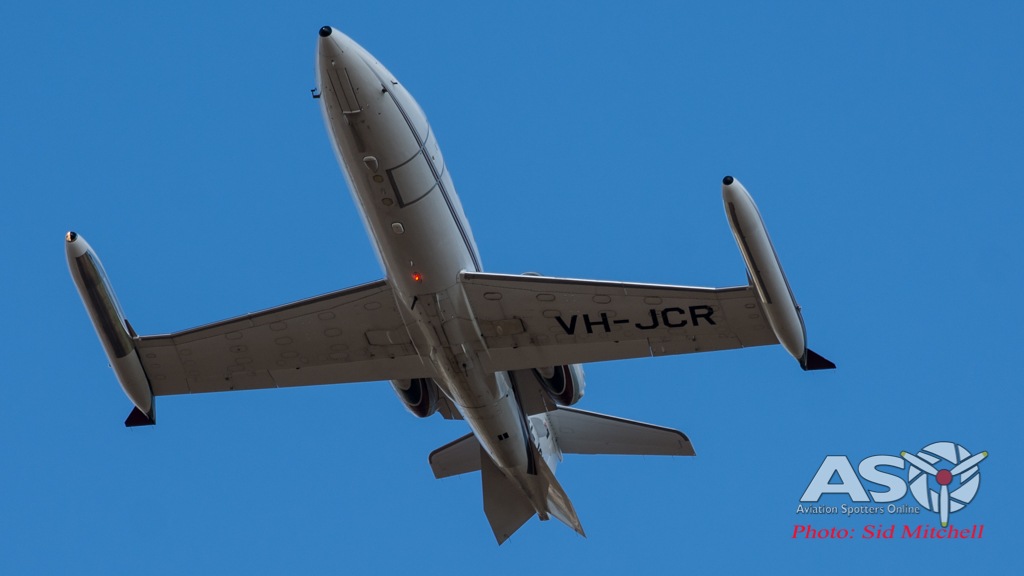
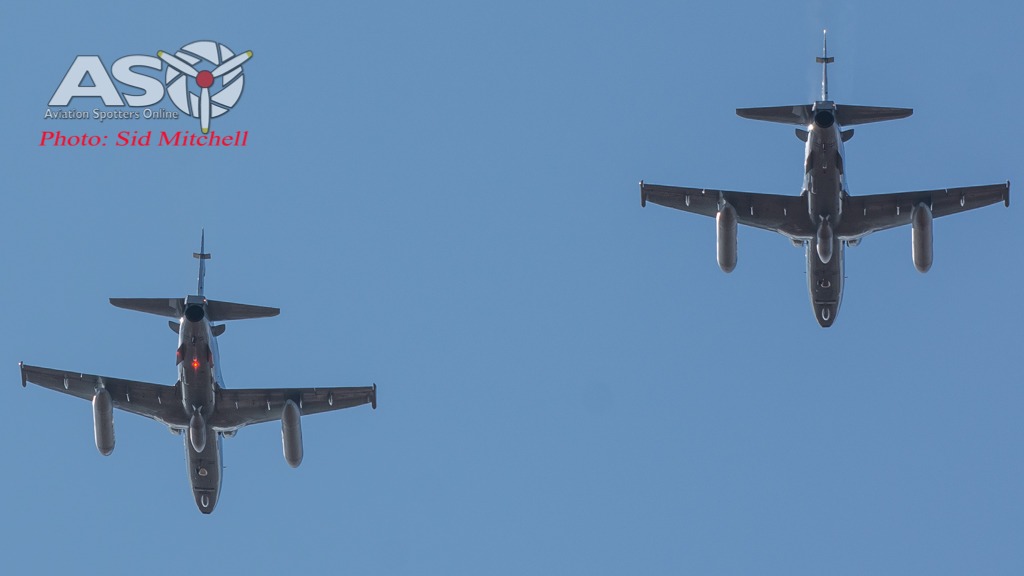


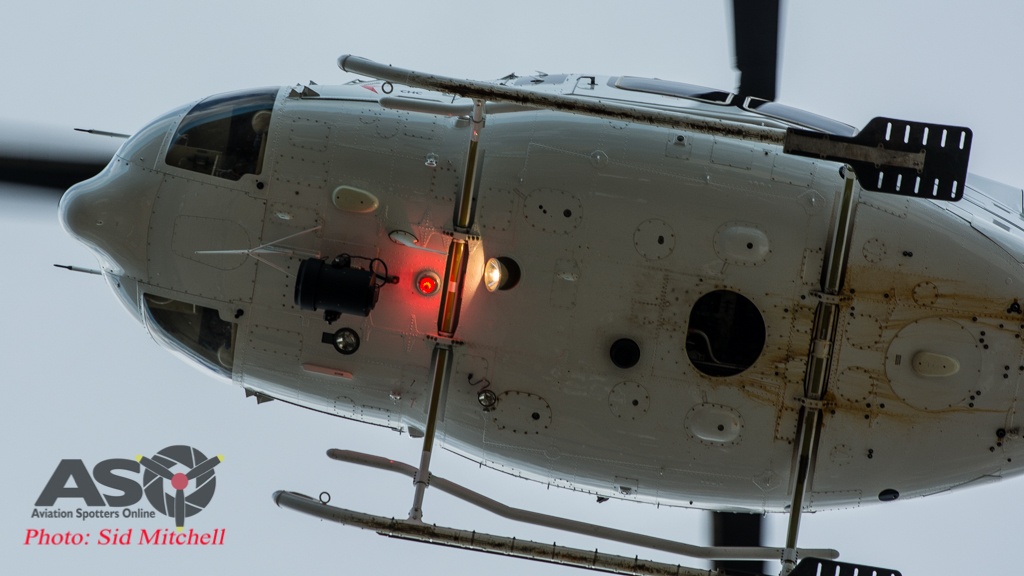
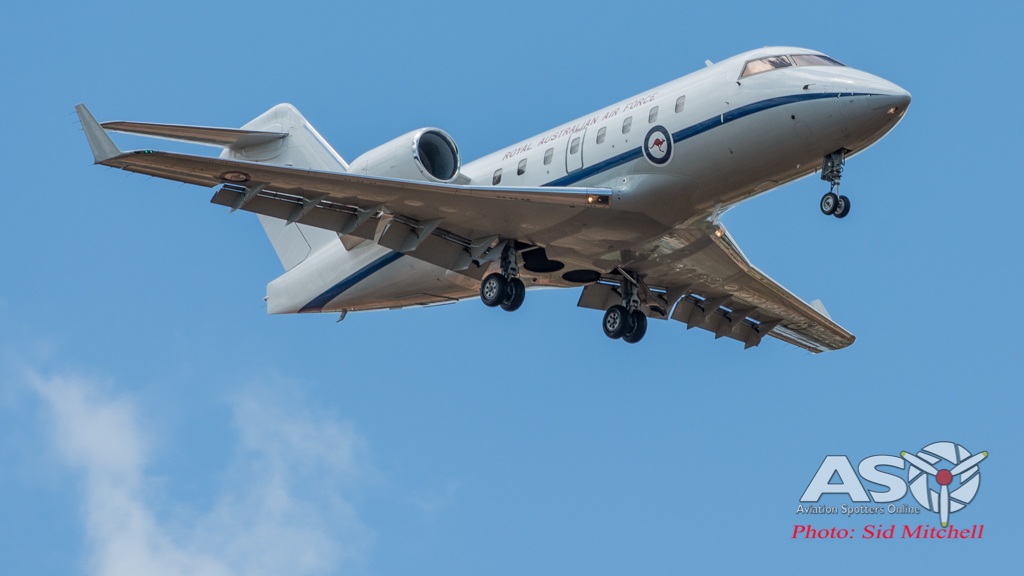
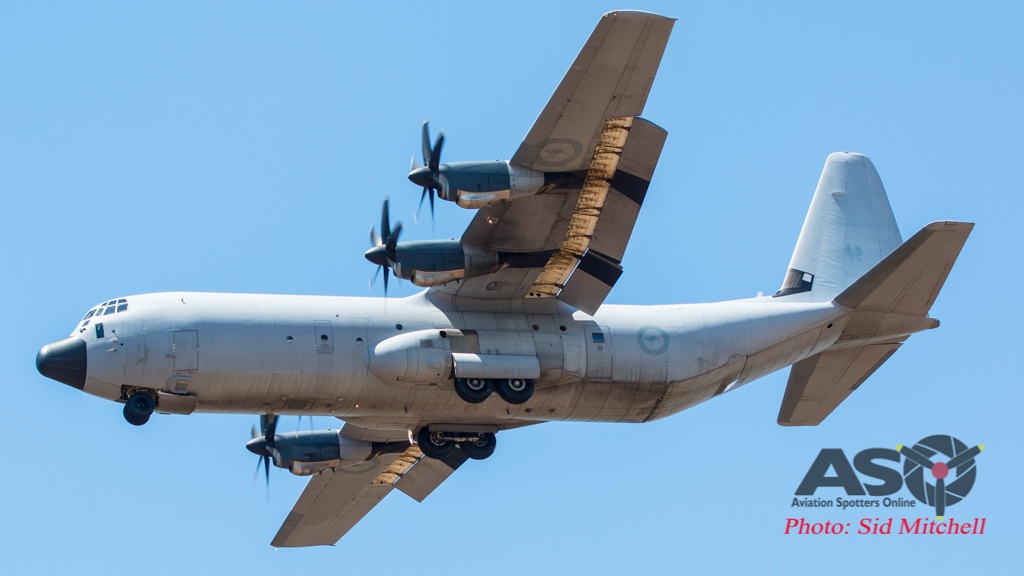

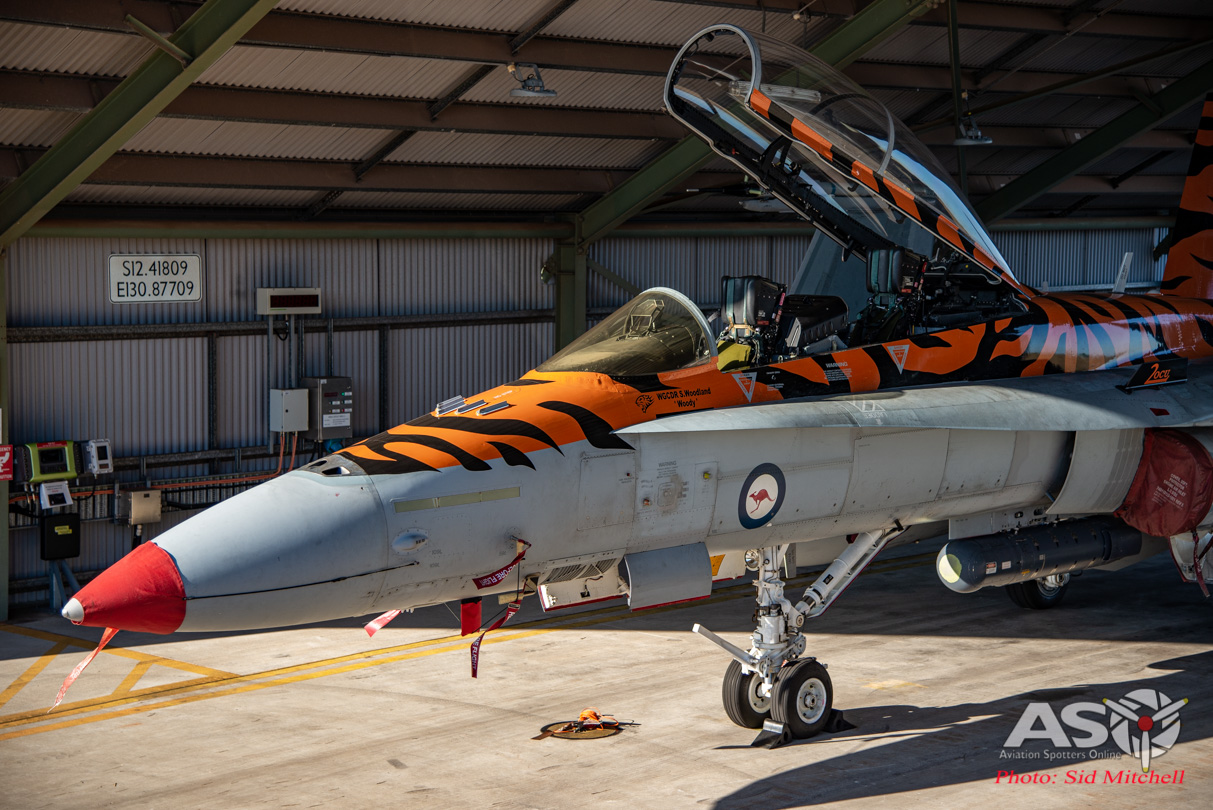
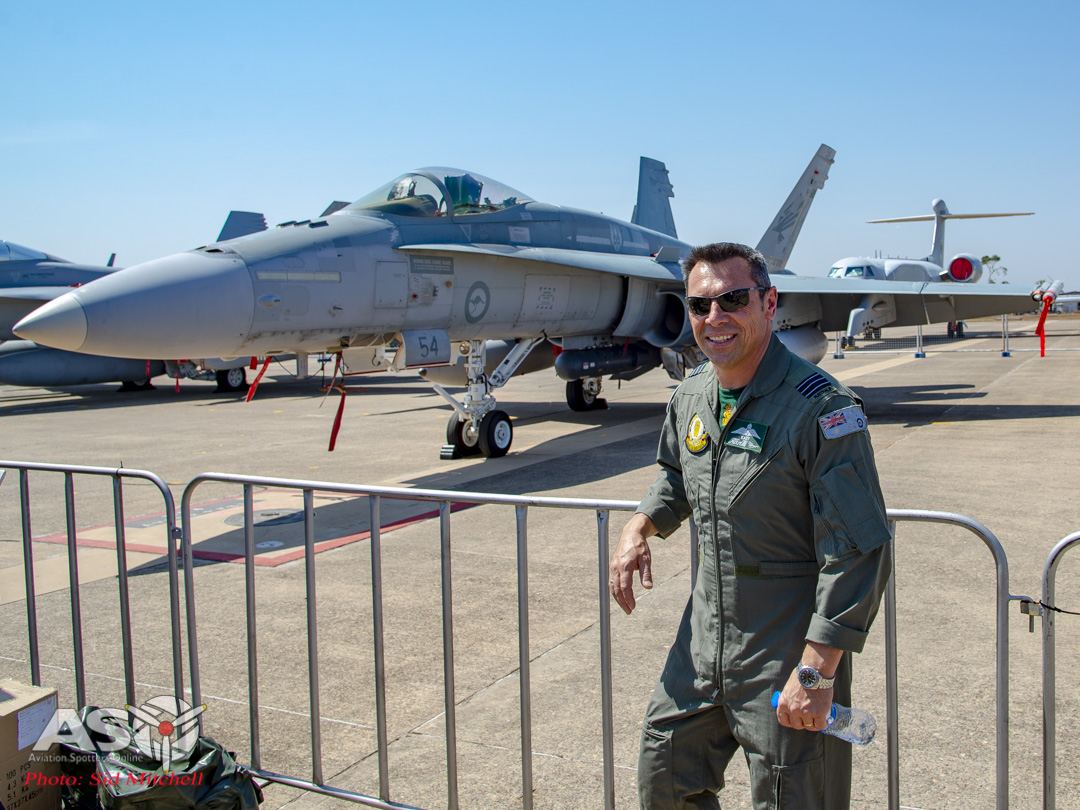
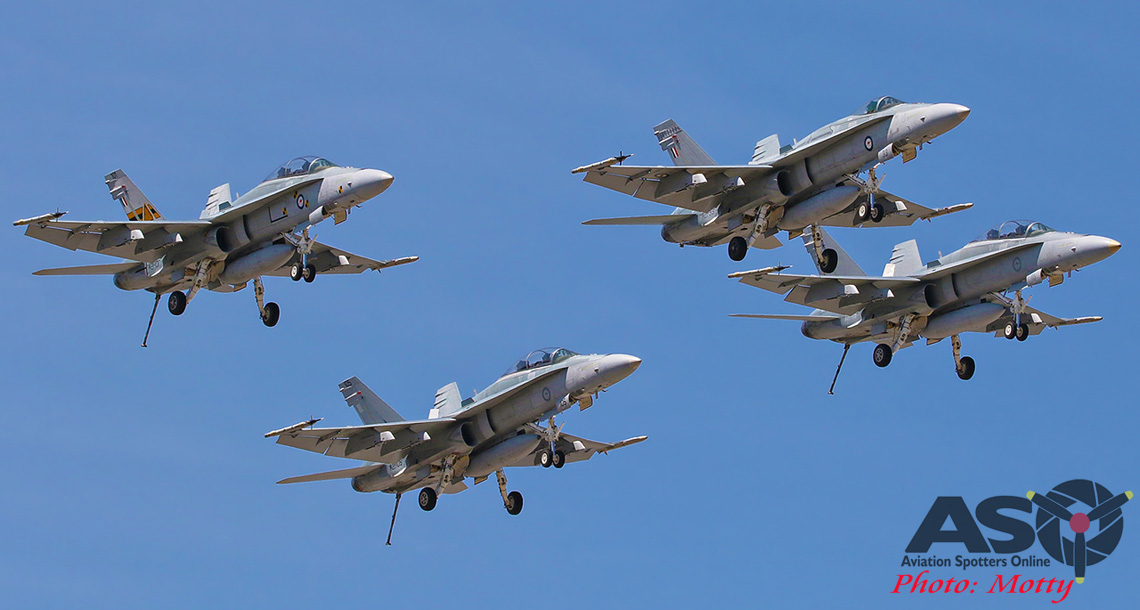
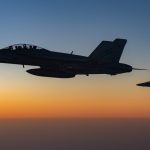
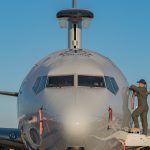
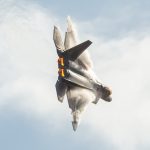
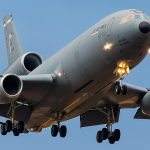
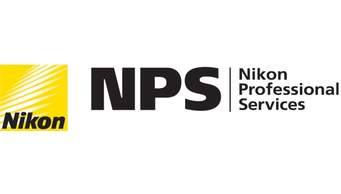
Trackbacks/Pingbacks